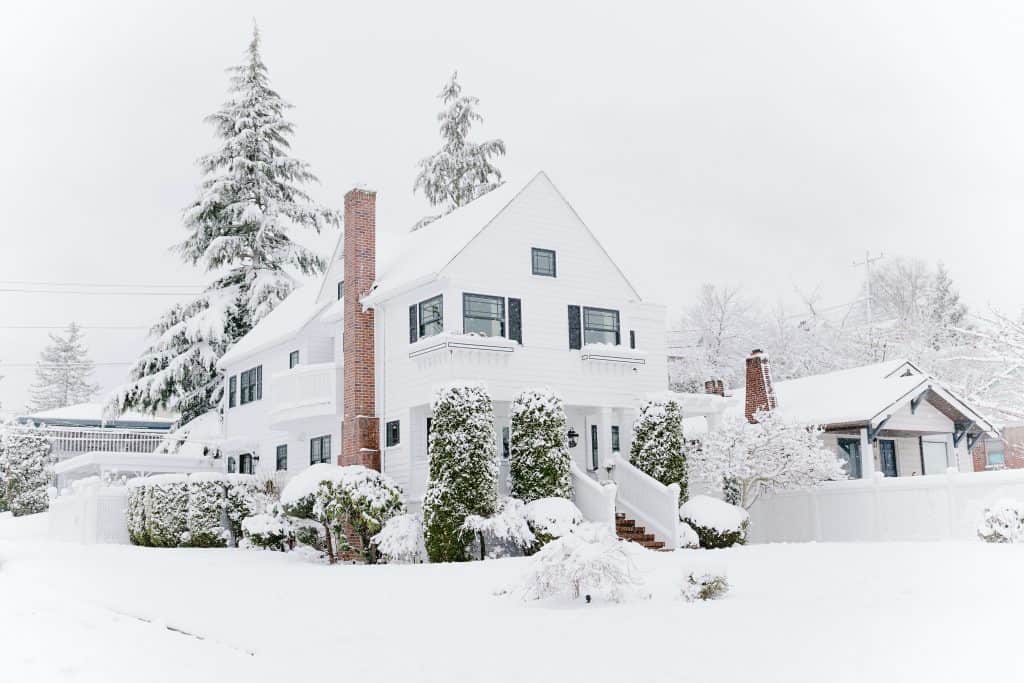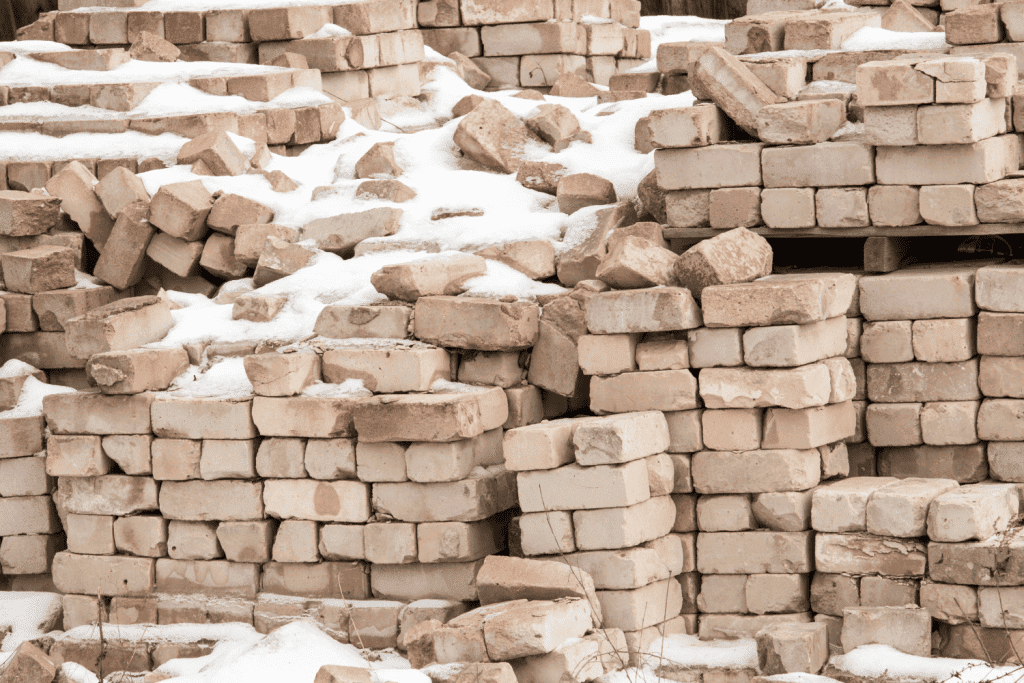Thinking of scheduling a new project this season, but not sure if your required masonry work can be done in winter? It’s typical for masons to prefer spring and summer for most jobs, but working into the cold months isn’t impossible.

Masonry Materials in Winter
Ideal temperatures for masonry work is above 40 degrees Fahrenheit. This is mainly due to the nature of the materials. What materials are we talking about? Well take mortar (the cement that binds your brickwork), which is typically a combination of sand and cement. Water hydrates the mortar and hardens it (if the temperatures allow it to). If the weather is too cold this process will be slowed or even stop.
You also don’t want your recently applied masonry to be exposed to cold temperatures that might cause it to freeze, and the water to expand. Frozen ground is an unstable foundation for masonry to settle over, and warm mortar laid over a cold surface can cause cracking.
Still, there are a few things masons can do to prevent the cold from ruining their materials.
Tips for preventing damage
- The materials can be heated within enclosed spaces (like a garage)
- Additives and/or accelerators may be used to help the mixture hydrate and the mortar cure
- Mortar must be protected (by tarps, blankets, etc.) for at least 24 hours for it to reach its full strength and avoid damage
If your mortar doesn’t complete the curing process, your masonry will not benefit from the full strength of its materials. Even if it lays well, you have an increased risk of damages in the future.
Masonry is durable, but the cure process is essential for it to reach its full potential. The majority of the mortar’s curing takes place within the first 24 hours, but freezing temperatures will extend this timeline. It takes another few weeks until the mortar reaches is full strength.
Mortar will always react differently in cold temperatures than it will in warm ones, and the mixture benefits from temperatures above 40 degrees. The mortar is at risk of containing a lower water content and a higher air content, which can weaken the caliber of even the strongest of materials.

What does this mean for scheduling?
We encourage anyone who needs masonry repairs or is looking for a beautiful patio installation in the next few months to contact a skilled mason as soon as possible, despite the season. Masons typically schedule their jobs throughout the year, and it’s always better to secure a spot than to have to wait till next year to start building your dream backyard or repair your ailing walkway.
Need help? Give us a call. We’ll be happy to discuss your options. Better yet, head over to our Get A Quote page and enter your information. You’ll receive a text message prompting you to record a video of your space. Tell us exactly what you want! We’ll reach out to you to discuss the details.
Stay warm!
